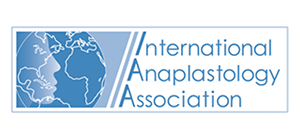Patient Support
The challenge of adjusting to a missing part of the face or body since birth or removed as a result of trauma or surgery can be emotionally debilitating. Our patients are remarkably resilient and adapt amazingly well to treatment for facial and body differences, but it is recognized that this resilience relates not just to surgical or prosthetic treatment. The social and emotional side of treatment is just as important, and should not be neglected. Addressing the needs of the individual in adjusting to a facial or body difference can greatly assist in the recovery process.
The IAA has compiled the following listing of Support Network Groups, Informational Resources, and Recommended Reading that should be helpful for patients and their families.
Patient Support Network Groups
These are networks of individuals with common experiences and concerns for one another. Patient Support Network Groups tend to provide practical information to individuals and their families. Please contact the following groups for more information.
- AmeriFace - Provides resource directory, self-help network and consultations for people who have facial differences.
- AboutFace International 123 Edward St., Suite 1003 Tornto, ON M5G 1E2 Canada 800-665-FACE Email: [email protected]
- Support for People with Oral and Head & Neck Cancer - P. O. Box 53 Locust Valley, NY 11560-0053 516-759-5333 800-377-0928 Email: [email protected] - Patient run support group network providing group meetings, networking, newsletter and insurance information for oral, head and neck cancer survivors.
- The Phoenix Society for Burn Survivors 2153 Wealthy Street SE #215 East Grand Rapids, Michigan 49506 (616) 458-2773 (616) 458-2831 Fax (800) 888-BURN (2876) Email: [email protected] - Provides peer support and counseling to patients and their families under the guidance and approval of medical professionals. They publish a Monthly newsletter called the Icarus File.
- OncoChat: Online Peer Support for Cancer Survivors, Families, and Friends - Global support community for people whose lives have been touched by cancer.
Informational Resources
There are plenty of resources on the web for individuals seeking information on cancer, burn-related injury, and aging. The following is a list of some:
- Administration on Aging - Information for older persons, families, practitioners, researchers, students, and the aging network.
-
-
-
-
Caregiver Survival Resources - Caregiver Media Group is a leading provider of information, support and guidance for family and professional caregivers. Founded in 1995, they produce Today's Caregiver magazine, the first national magazine dedicated to caregivers, the Sharing Wisdom Caregivers Conferences and their web site which includes topic specific newsletters, online discussion lists, back issue articles of Today's Caregiver magazine, chat rooms and an online store.
Recommended Reading
There are several journal articles and books that may be of interest to our patients. The following is a list of some:
-
-
After Plastic Surgery, Adaptation and Adjustment by Frances Cooke Macgregor Journal article available in medical libraries.
-
Emotional Care of the Facially Burned and Disfigured by Norman R. Bernstein
-
Face Value: Coping with Facial Disfigurement by Linda R. Shafritz ISBN 0-9646774-0-7
-
Earless by Tyler Menssen. Tyler Menssen, a student at Minnesota State University, Mankato, has overcome the trials and tribulations of being born with Goldenhar Syndrome to become a model student, volunteer, worker, and now published author. In this memoir, Tyler shares many situations he has encountered while being born with Goldenhar Syndrome and goes in depth with his thoughts and feelings on subjects ranging from high school and college classrooms to what it might be like to spend a day as his ears, if they were real of course.
|
